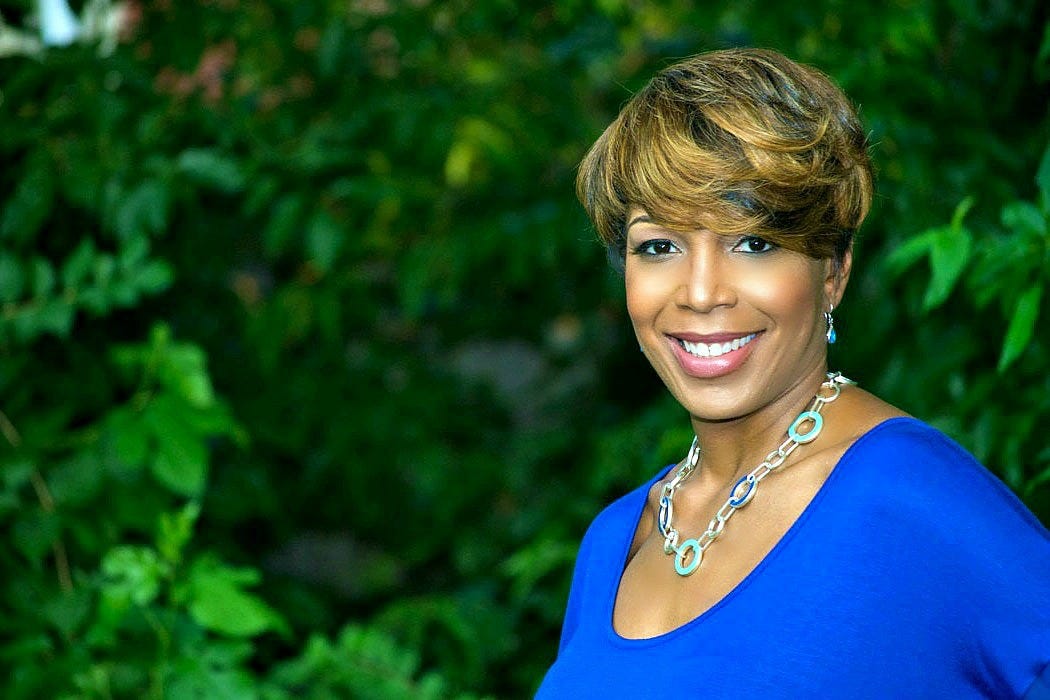Mental Health providers may not be thanked often, portrayed in movies as superhuman or wear capes to work but make no mistake, they’re heroes.

They’re responsible for helping those who need it most, which can be a tough challenge when patients struggle with mental health conditions, often resulting in poor engagement, motivation, and treatment compliance.
This is our effort to do a little for them and recognize the group of professionals that do so much for us.
To all of the mental health providers out there, thank you.
Next up in our Mental Health Spotlight: Dr. Argie Allen Wilson.

Dr. Argie Allen Wilson (affectionately known as Dr. Argie), Co-Founder and CEO of Connections Matter, LLC and Director of Clinical Training in the Counseling & Family Therapy Department at Drexel University.
Dr. Argie is the host of the Emmy nominated segment Fox 29 called All Teched Out where she addresses how technology creates more disconnection in intimate relationships.
You are an accomplished leader in the field of psychology, who can mend relationships and repair the confidence of your patients. What are some of your guiding principles?
Ihave been committed for over 20 years as a mental health professional to helping families heal one relationship at a time. I always start with the basic principle that my clients are the experts in their lives and have the ability to heal from the inside out.
With that said, my job is to facilitate the healing process by creating a safe environment that promotes and develops confidence while fostering movement towards repairing and mending their past and present relationships.
Once the joining process has begun and trust is gained, the next fundamental principles are to assess the root of their distress, to focus on understanding those origins and begin developing skills to support them in their healing.
I have found that these guiding principles have rendered tremendous success over the years in helping clients to live their best lives.
Advising C-Suites can be difficult at times. Talk about how you manage “Type A” personalities and those in leadership positions who aren’t used to being challenged in professional settings. Do you ever get push back?
There is always push back when you’re working with talented “Type A” personalities.
CEO’s have a fiduciary responsibility to improve and grow the bottom line for shareholders and while that is clearly the objective of any cooperation, my job is to help them understand that people matter. In order to achieve the organization’s maximum potential it is imperative to help them understand and develop their EI (Emotional Intelligence).
This ultimately fosters a connection to the very people who will help them execute and maximize profitability for the company.
That said, an underlying challenge is that in general, people don’t like change and people who are used to being in charge really don’t like to be challenged. My goal in working with Executives at top level C-Suites is to invite them to have an opportunity to grow in an area they may not have considered that will assist them in gaining more connection in the environment they are committed to succeeding in (i.e. the workplace).
My job is to expand their thoughts about how everyone under their leadership can thrive, not just survive, and ultimately, people don’t care how much you know until they know how much you care.
The CEO of a top company must always consider this in order to sustain and maintain continued growth by instituting a technique I developed called the C.R.E.W. (Connecting Relationships for Epic Wins).
Those who struggle with stress and anxiety at work often carry this into their personal relationships. What are some strategies for building a work-life balance and insulating your family from these daily burdens?
Skills and strategies I teach to combat the negative outcomes of work related stress and anxiety are as followed:
- Make self-preservation a priority (not to be confused with being selfish).
- Commit to protecting family time (focus on the quality of your time with loved ones vs. quantity).
- Engage in healthy lifestyle changes like yoga, meditation and exercise.
- Bracket discussions about the workplace at home so that your home environment becomes more of a respite from work vs. a continuation of work related tasks and commentary.
- Employ work-free zones (times of the day, weekends, dates etc.) where there is no conversation about work.
- Keep their familial engagements light and fun.
- Commit to saying no to unreasonable requests and protect their home life from work related tasks.
Why do you love what you do?
I love what I do because I get to help transform individuals, couples and corporations one courageous conversation at a time.
People come to me in pain, and I am afforded the opportunity to create a safe place for them to process their pain and turn it into power. It is truly an honor and privilege to give people hope and to help them heal so that they can go on to live their best lives while having successful and satisfying relationships.
Doing this very important clinical work is my gift to humanity while I’m here on this planet.
